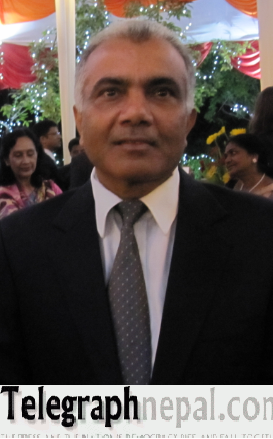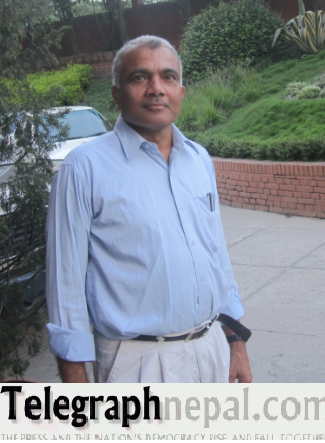Dev Raj Dahal
Modern organization is founded on the notion of social contract between the state and its citizens.
The equality of citizenship has created a basis for equal participation of all the citizens in the governance process in which the state is expected to command sovereignty and to provide a good life by means of preserving enduring positive values that enhance liberty, order and justice in society.
How does the sovereignty of the state coincide with the sovereignty of people?
The logic of our constitutional democracy has established the essential arguments for a system of civic rights and duties as well as the scope for rational change.
These ideals provide nutrients to erect the even boundary between the state class and different sets of citizens, fosters their education and acculturation to civic spirits, prepares them for citizenship responsibility and builds their civic character.
In a multi-cultural society like Nepal, active engagement of citizens in the entire web of social and economic associations that dot the democratic landscape is crucial for national integration.
Civic education constitutes a relation of politics to people’s life and celebrates a new regime of equality and brotherhood as opposed to petty infantilism and arrogant juvenility.
Critical debates on civic rights and duties can be expected to contribute to strengthening the bedrock of citizens’ attachments with the polity and the state and build a social and national consensus for policy coherence and concertation.
It helps the revival of the national spirit. A few questions can thus be constructed that might be pertinent for intellectual drill:
How can the concepts underlined in the structural and normative foundations of the Constitution of the Kingdom of Nepal 1990, such as directive principles, separation of power, checks and balances, fundamental rights, social justice, welfare state, guarantee human security for all the citizens?
Are the globalization and economic liberalization policies of the government consistent with these goals?
It is often argued that democratic space exists within the nation-state.
If citizens lose control over their national economic, social and political matters to global forces, the civic order of democracy shrinks deeper and deeper into the abyss.
This brings an authority crisis for the government and loyalty patterns to the state, political parties, parliament and the institution of governance. In such a condition, how can democratic polity be effectively institutionalized in Nepal?
Is it possible for the institutions of governance to remain inclusive when the vision of rebuilding the Nepali nation faces four crucial challenges: alleviating poverty, ending social exclusion, combating political alienation and managing the post-modern form of popular ecological, gender, human rights, civil society and social movements which are struggling outside the political space for equality and equity?
How can democracy serve as a legitimizing instrument of national coherence in both domestic and foreign policy matters and provide the citizens a shared collective identity?
A live discourse is, therefore, needed on how our democratic institutions have imbibed civil liberties which inspired the democratic struggle while out state protects the heritage of our syncretic culture and equips the citizens with the power to shape and reshape the vision of democracy that they and their institutional partners, such as political parties, media, civil society and a host of associations, often reconstitute.
The luxury of democracy becomes dull and unresponsive if democratic discourses freeze in the public mind leaving the leadership free to interpret only those what they see and believe.
A culture of silence is the fetal sign of democratic deficit.
What are the fundamental values of citizenship, besides fundamental rights and duties?
Citizenship begins with commitment to and respect for sovereignty and territorial integrity, national anthem, national flag and social harmony in a spirit of brotherhood among all the people of the nation irrespective of religious, racial, linguistic, class, caste and gender diversities.
If the values of citizenship are deeply internalized by the people, social conflicts are largely undermined and people take more personal responsibility for what is happening in their family, community, nation and the state.
A radical reconstitution of citizenship is, therefore, required to make democracy functional which will also enable them to select the most workable of the choices that their polity offers to them and constantly protects their power of thinking, working and creating everything the nation lives by.
Governance cannot be explained merely in terms of rational self-interest as many utilitarians believe.
It destroys the ethical basis of democracy, weakens their political identification and increases citizens’ responsibility without devolving power and authority to them.
One has, therefore, to find a solution to the problem of what is to be done in the case of a clash between political rationality of democracy in the long-term perspective (the needs of citizens to survive and develop according to their own ideas, priorities and decentralized governance) and the economic rationality of the market in a short-term sense (exchange, efficiency and competition of interest relations and structures).

If ethical values that glue the social sectors of society are broken, all that is left to political power cannot represent broad majorities and the power of the leadership becomes disproportionate to their representativeness.
In this situation, how can the state ensure regulatory conditions that are acceptable to the majority of citizens?
Critical discourse are, therefore, needed to situate citizens’ interests to the realities of power and provide them cognitive services enabling them to judge the performance of their leaders on the basis of value criteria characteristic of good governance.
Citizens also need a multitude of stable institutions to ensure general equilibrium in the polity.
These institutions are particularly valuable to bind all the members together, even the minorities and marginalized, for the national purpose.
Social trust and concern for fellow citizens help those who are lacking something fundamental for their survival and a dignified life.
Critical discourse on this haunts the voice reduced to silence by means of manipulative practices, misinformation, and ill-rationalization and evokes all of those intangible values and beliefs upon which democracy is grounded.
The duty of democratic leadership is to protect the weakest members of society, entitle them to their inalienable rights and equal opportunities of education, and economic and political participation.
If rights of citizens remain unenforceable like party manifestoes, the vision of the society envisaged in our constitution becomes a mere utopian imagination in which the horizon of popular hope and aspiration appears beyond reach and, consequently, rationalization of life-world suffers.
The crucial task ahead for our polity concerns with the quest of bridging this growing hiatus in the words and deeds of our leaders and saving our polity from its performance crisis.
The art of politics must be utilized to exercise the power of the public for synergy of good governance–that is just, transparent and accountable to a sovereign people.
It is precisely the orientation of social actors to public interest that makes democratic stability both possible and achievable. Proper civic education helps in reforming our political culture, strengthening our institutions and articulating democratic life of the public.

